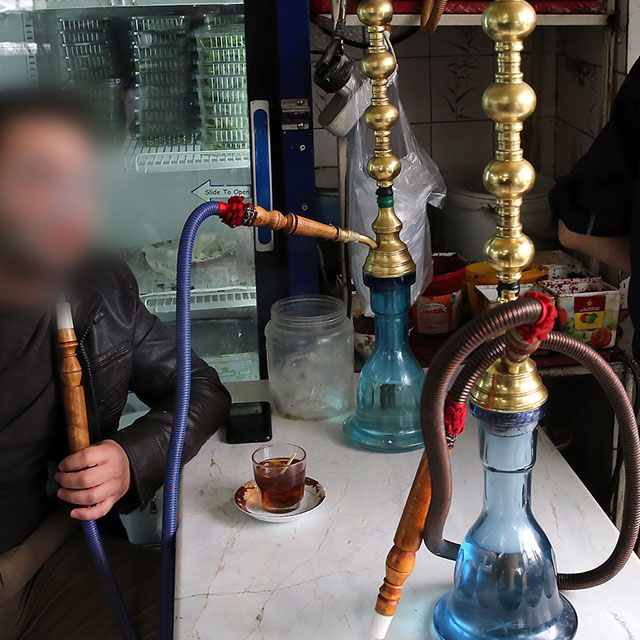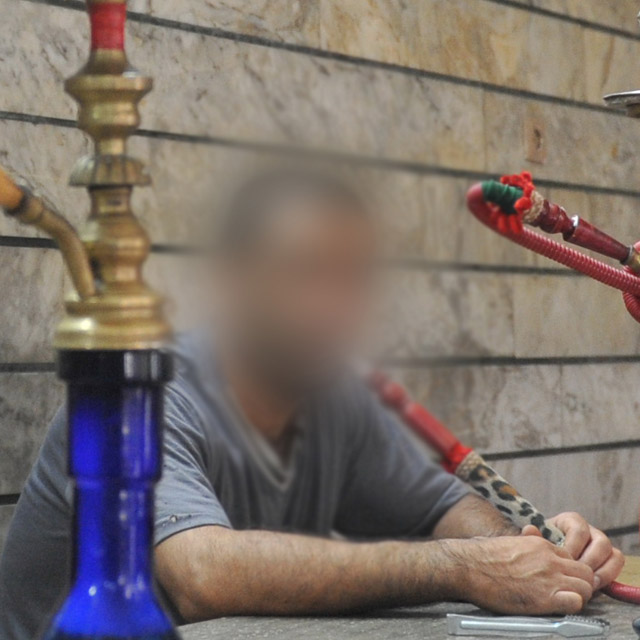What we do

Advocating for tobacco taxation
Significant increases in taxes and prices of tobacco products are the most cost-effective measures to reduce tobacco use, particularly among vulnerable groups like youth and those on low income. Development of an applicable model for tobacco taxation and proposing solutions to enhance fiscal policy on tobacco, considering the national context is in progress.
Sustainable waterpipe elimination and tobacco-free city/village
Reducing tobacco use and exposure to its second-hand smoke and providing a supportive environment is important and is emphasized in Article 9 of the WHO Framework Convention on Tobacco Control (WHO FCTC), especially in the context of COVID-19. In this regard, 63 cities and 63 villages were selected by the Ministry of Health and Medical Education to start the Tobacco-Free Initiative focusing on tobacco demand reduction, as well as supply reduction. In addition, the Ministry, in line with COVID-19 control and prevention and implementation of the national tobacco control law, has approved the implementation of sustainable waterpipe elimination in all the public places throughout the country, which entered into force in (when). WHO provides technical support to these programmes.
Tobacco cessation services
In a set of interrelated projects, in collaboration with the Mental and Social Health, and Substance Abuse Department of the Ministry of Health and Medical Education, WHO technically supports the governance of tobacco cessation services in Islamic Republic of Iran by launching a tobacco cessation helpline and establishing 63 clinics to provide tobacco cessation services for the public for the first time in the country. We work to enhance tobacco control visibility by documenting successes, best practices, and lessons learnt. In addition, WHO supported a social marketing campaign to encourage the smokers to quit and the development of an advocacy programme to strengthen tobacco cessation services.
Tobacco-free campus/schools
WHO provided technical support to the implementation of the tobacco-free campus initiative based on WHO Nicotine- and Tobacco-Free School Campus Guide in selected sites in Islamic Republic of Iran. Tehran University of Medical Sciences was assigned as one of these sites. WHO also supports implementation of the tobacco-free school initiative in 4 selected schools in Tehran as demonstration sites to document the lessons learnt and best practices, in collaboration with the WHO Framework Convention on Tobacco Control (WHO FCTC) secretariat and the Ministry of Health and Medical Education and Ministry of Education. These initiatives will be scaled up in the country.
Vision 2020 Iran
Vision 2020, jointly conducted with the Ministry of Health and Medical Education, assesses the impact of interventions to reduce the prevalence of avoidable visual impairment and development of the eye care system. The analysis will inform policy development and guide eye health professionals. It is a prerequisite for the integration of primary eye care within universal health coverage for 2020–2030 in Islamic Republic of Iran.
Diabetic Retinopathy Care 360°Actions
Diabetic retinopathy is a common complication of diabetes and a preventable cause of vision impairment and blindness worldwide. As part of the Diabetic Retinopathy Care 360°Actions project a conceptual and operational framework for currently implemented models of diabetic retinopathy care was developed, which is primary health care-oriented and is oriented towards professionals and underserved remote and rural areas. After the piloting of proposed models of eye care services, services will be scaled up nationwide.
Mid-term review of the national cancer control programme
A mid-term review of the national cancer control programme is currently under way to document lessons learnt and share best practices in Islamic Republic of Iran, in accordance with WHO and International Agency for Research on Cancer (IARC) guidelines and recommendations. This review is being conducted by a range of stakeholders, including the National Cancer Control Secretariat, the United Nations Children’s Fund, IARC, International Atomic Energy Agency and WHO. Revisions will be made to the programme based on the results of this review.
Assessment of ear and hearing care system and services
The prevalence of disabling hearing loss in Islamic Republic of Iran has been estimated at 5.5%. This rate represents about 5 million people in the country. The presence of reliable and precise data is necessary for policy development, accurate health management, evidence-based decision-making and the rational use of scarce resources. WHO provides support in updating situation analysis reports of ear and hearing care and in the development of required services.
What we have achieved

Increased access to tobacco cessation services
The first ever tobacco cessation helpline was launched and 63 tobacco cessation clinics under 63 universities of medical sciences throughout the country were established to help people trying to quit smoking. The helpline can be reached by dialling 4030 and extension 9. All calls are free of charge.
Sustainable waterpipe elimination and tobacco-free cities/villages
The tobacco control programme has implemented interventions to reduce waterpipe use in public places.
WHO FCTC national coordinating mechanism strengthened
Fifteen years into implementation of the WHO FCTC and following a request from the Ministry of Health and Medical Education, the WHO country office in Islamic Republic of Iran provided technical support to the WHO FCTC secretariat and proposed recommendations for its enhancement.
Enhancement of the cancer information management system in the context of the COVID-19 pandemic
A new database linking Islamic Republic of Iran’s cancer information management system with the COVID-19 database can provide up-to-date and on-demand information on the clinical and epidemiological aspects of patients with cancer in the context of the COVID-19 pandemic.
NCD response plan in the context of COVID-19
The COVID-19 outbreak has potential negative effects on both the prevalence of NCDs and their related risk factors and on access to NCD health services. Mobilizing resources to provide COVID-19 services can divert resources from other health services, such as those for NCDs, and so a response plan for the management of NCDs and their risk factors during the COVID-19 pandemic was developed.
National plan on physical activity
A national plan for physical activity was developed based on the "Global Plan of Action on Physical Activity and Well-being for All", in collaboration with all stakeholders for the period of 2020–2030.
Prevention and control of NCDs: the case for investment
Despite clear indications of the need for serious action to control the NCD pandemic worldwide, there is a paucity of financial resources for advocacy and planning purposes in many countries. Therefore, a global project was initiated to develop a series of investment cases, in collaboration with local experts in each country. These investment cases include an economic component assessing 4 main areas, including the costs incurred by NCDs, the cost of control interventions (selected from a set of interventions designated as “best buys” by the World Health Assembly), the impacts of these interventions on the burden of NCDs, and the return on investments. In collaboration with the Ministry of Health and Medical Education, local experts and other United Nations agencies, WHO evaluated the economic component of the investment case study in Islamic Republic of Iran to catalyze intersectoral efforts to control NCDs in the country.
What is next
Sustainable waterpipe elimination and tobacco-free cities/villages
WHO will continue to provide technical support to the Ministry to implement the sustainable waterpipe elimination programme in every city and village in Islamic Republic of Iran. In addition, the Qom Tobacco-Free Initiative experience will be scaled up nationwide so that the initiative will be launched in at least one city and one village with a population of more than 1500 under the auspices of each university of medical science.
Strengthening the internal mechanism of the national committee on NCDs
The internal mechanism of the national committee on NCDs will be strengthened at national and subnational levels and its achievements documented in the form of an advocacy document. This activity will involve engaging the community, increasing visibility, conducting advocacy and a review of the internal mechanism.
Integration of NCDs within primary health care (PHC)
Health systems need to be strategically re-orientated to integrate NCD management into people-centred PHC. WHO will provide technical support to the national health system to increase the capacity for scaling up NCD services and evaluate progress on integrating NCD services into the PHC system.








